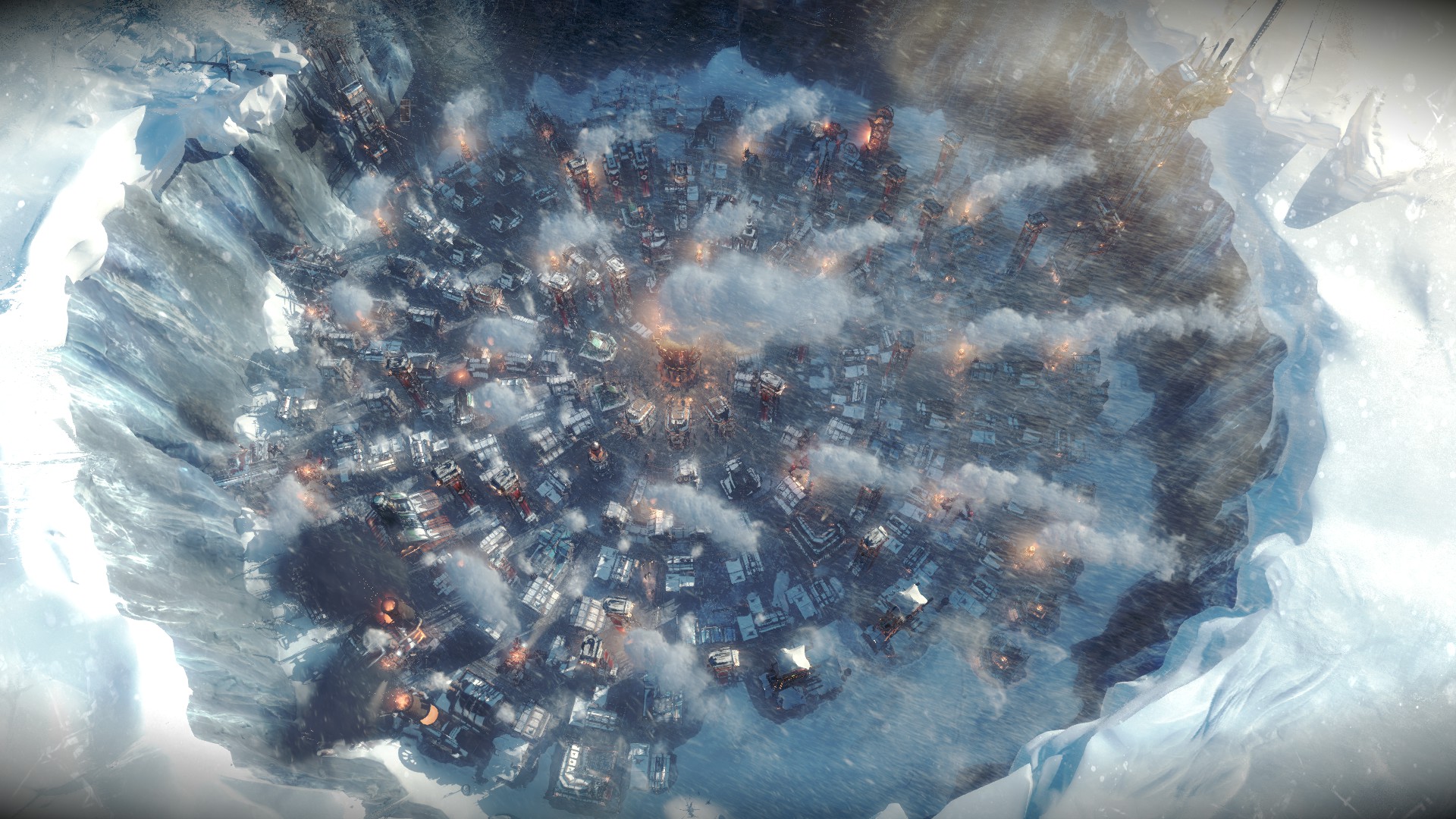Our Verdict
Frostpunk is a stressful, stylish, and addictive survival management game filled with incredibly difficult choices.
PC Gamer's got your back
What is it? A city-building survival strategy game set in a frozen world.
Expect to pay $30
Developer/Publisher 11 Bit Studios
Reviewed on Intel Core i5-6600K @ 3.50 GHz, 8 GB RAM, Nvidia GeForce GTX 980
Multiplayer None
Link Official site
"I wish everyone was just like you," I mutter to my steampunk automaton as it stiffly lurches toward my coal mining plant, leaving big, round footprints in the deep snow. I have grown weary of the humans inhabiting my city. They're frail. They're fickle. They get hungry and angry and sad, they fall ill from the cold and skip work, they lose limbs to frostbite and can't work. They suffer and die, and worse than that, they make me suffer because they have thoughts and opinions and most of all, fears. My steambot, though: it just works, only pausing occasionally to refuel. These humans need hope to survive, but my robot doesn't. It's an ideal citizen.
Frostpunk is a city-builder and a society simulator, but most of all a crisis management game where the crisis doesn't end until the game does. A few hours with Frostpunk and the tornadoes and tsunamis of Cities: Skylines seem like minor inconveniences. The traffic jams and noise pollution you used to fret over are now an utter fucking joke. In Frostpunk, if citizens are unhappy enough they'll banish you from your own city to die despised and alone. They might leave town if you fail them, but first they'll spend days trying to convince others to join them in mass exodus. Frostpunk is a tense, gripping, and often stressful survival strategy game filled with difficult, sometimes unthinkable choices. It's tough to play but even tougher to stop.
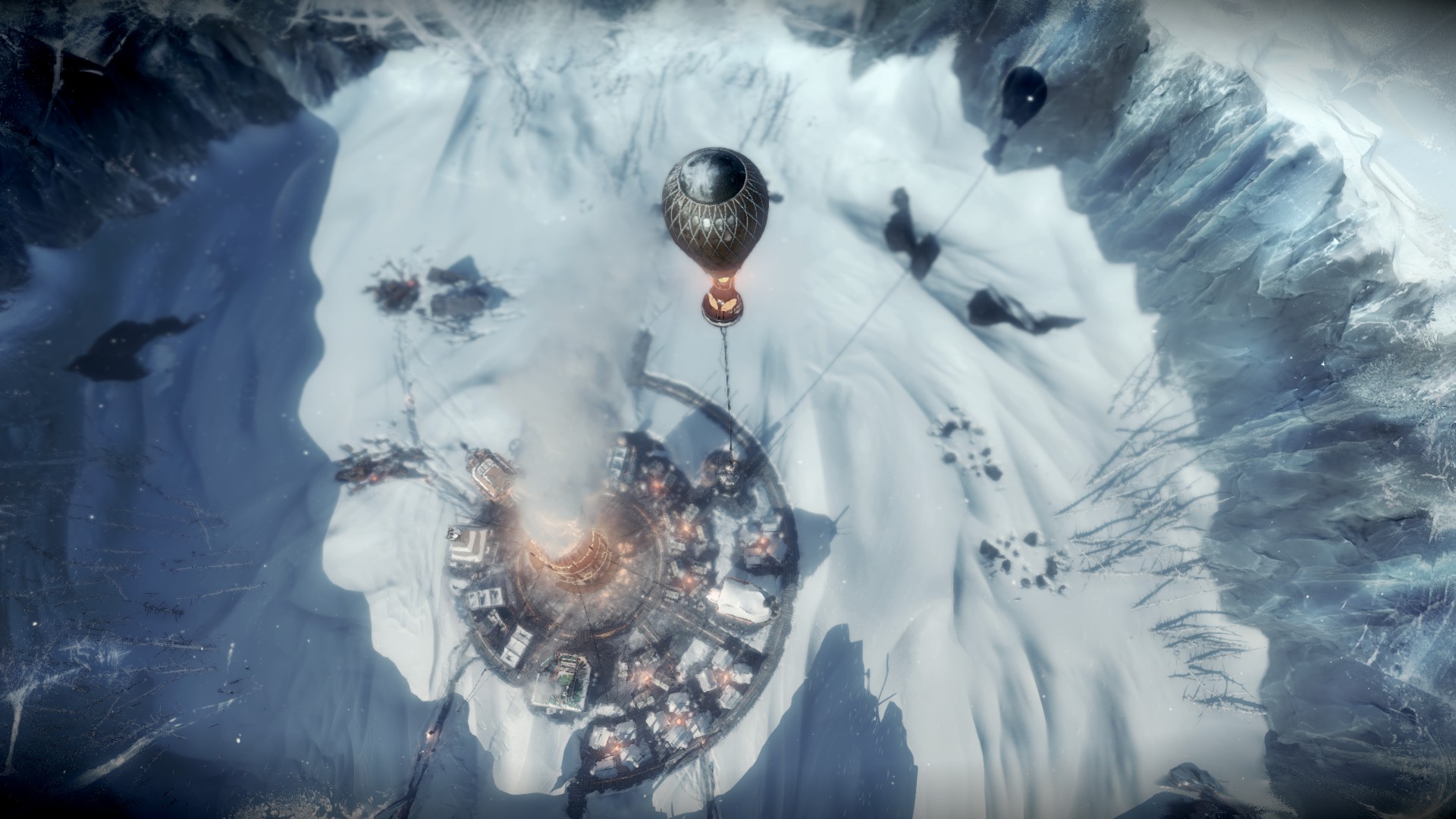
Steam building
In Frostpunk's version of the 1800s, the entire world has become a sub-zero, arctic wasteland. After fleeing London, the only hope for the survival of your few dozen followers is a massive coal furnace standing in the center of a crater. You'll build a small city that huddles around that towering furnace for warmth: a handful of tents, a hunting lodge, a mess hall. Resource gathering is initially limited to sending your citizens pushing through chest-high snow drifts to pick coal from the frost and bust up old crates and scrap piles for wood and steel. Build a lab and staff it with engineers to begin researching new tech: sawmills for cutting down frozen trees, mines to unearth resources from the floor and walls of the crater. Streets will eventually form spokes radiating out from the furnace and you'll line them with buildings and steam towers to keep the ice melted—at least until the temperature plummets even lower.
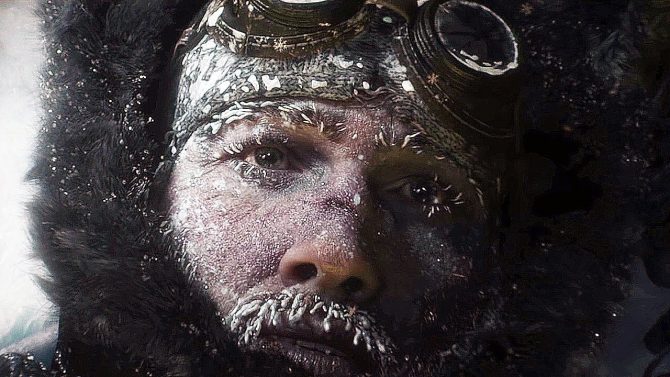
Frostpunk's challenges are cold-blooded so we've put together some tips for staying frosty. Here's our guide to getting started with Frostpunk.
But that's later. In the early days your city is sparse and the situation is grim, with resources so scarce—and labor power to collect them scarce as well—that simply seeing the sun rise after a night without a casualty feels like major victory. Each new building and item on the tech tree needs to be carefully considered and weighed before spending resources on it. Constructing a pub will lift people's spirits, but that wood is also needed for a medical center to treat the ill. Assigning more hunters to gather food means pulling workers off coal gathering duty, solving one shortage by creating another. Saving up resources to build something important tomorrow when people are homeless or sick today feels cruel and heartless and completely necessary. When asking 'What do my people need most?' the answer is usually: everything.
In the hours before I grew to hate every last one of them, I was constantly torn between short term fixes and long-term solutions for my citizens, feeling guilty for extending work hours to mine a few more chunks of coal to keep the furnace running all night. Wonderfully difficult choices await at every turn in Frostpunk, with precious few being clearly right or wrong.
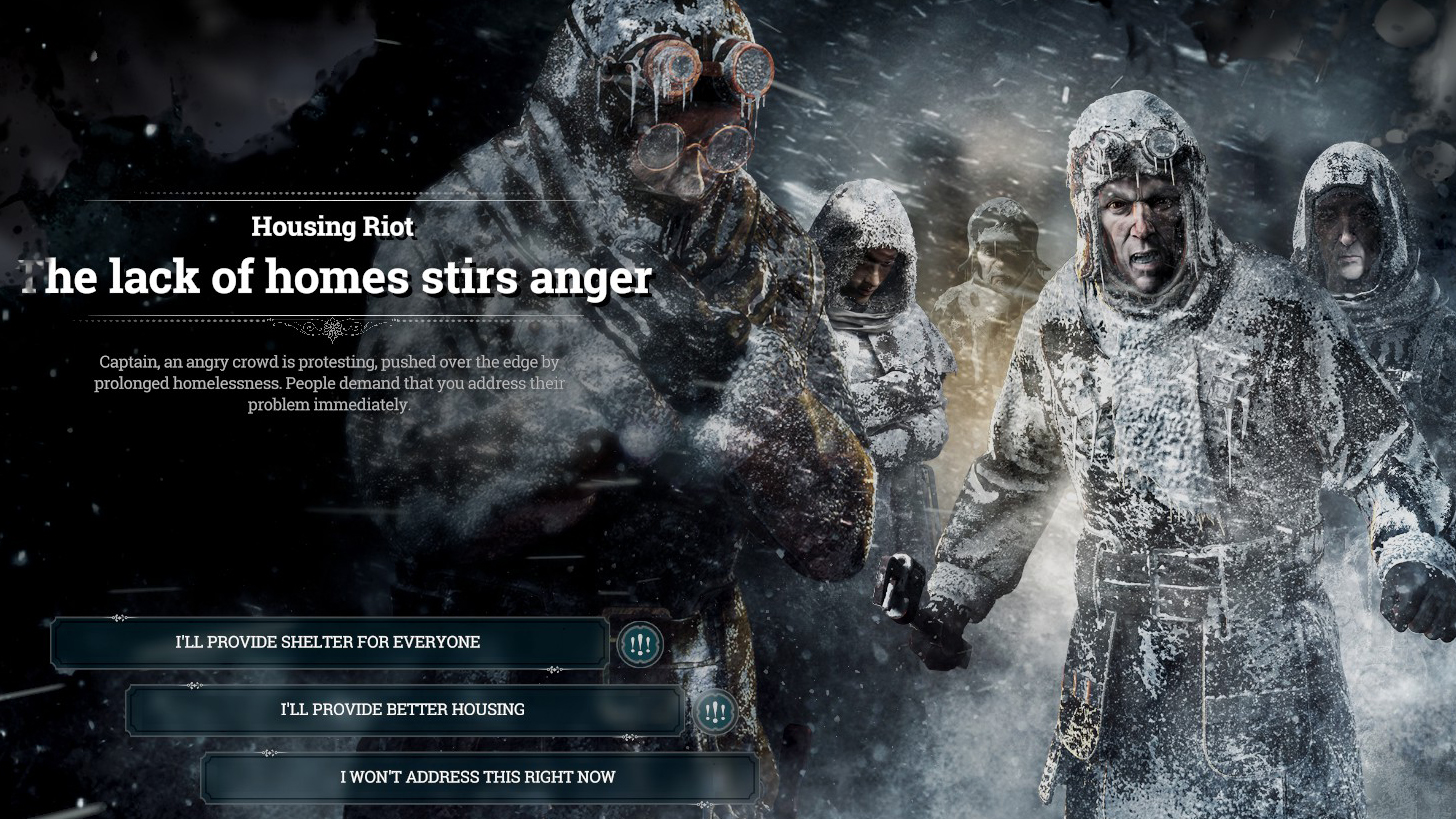
While my eyes flick restlessly over tiny meters at the top of the screen—how much wood and coal and food is left, and how long will it last—I spend more time staring at the bigger meters at the bottom: discontent and hope, the true gauges of my city's health. Call for a 24 hour work shift and discontent will rise sharply, even as the additional labor saves lives. Sending everyone to bed with full bellies will give them hope, even if they're sleeping in freezing cold tents. If discontent gets too high, or hope too low, you may be notified you only have a few days to reverse the trend by accomplishing a specific goal. Fail to deliver, and those meters will take a hit, creating a tricky balance. That lumber you used to construct a steel mill instead of new homes might make your city ultimately stronger, but you broke a promise to provide shelter for all, so people lose faith in you. It's a masterful expression of the burden of leadership.
You'll be alerted from time to time of some grim events in your city. A child was found nearly frozen sitting next to the grave of his parent. A citizen committed suicide by leaping into the furnace. Someone pulling a double-shift worked himself to death. Sometimes there's nothing to do about it: it's just a little moment the game offers up to make you feel like absolute shit. (To be fair, someone occasionally thanks you for something, but kind words are quickly forgotten when an automaton accidentally crushes someone underfoot.) Sometimes you can make a choice: between forcing an exhausted worker to continue or letting him rest, or choosing to believe (or not) a citizen asking for extra food who may not actually have a hungry child. You're told in advance how your choices may result in a small bump to discontent or hope in either direction, but the reality is that you'll often have to make everyone unhappy to keep them alive. And you'll make more meaningful choices, and more difficult ones, by passing laws.
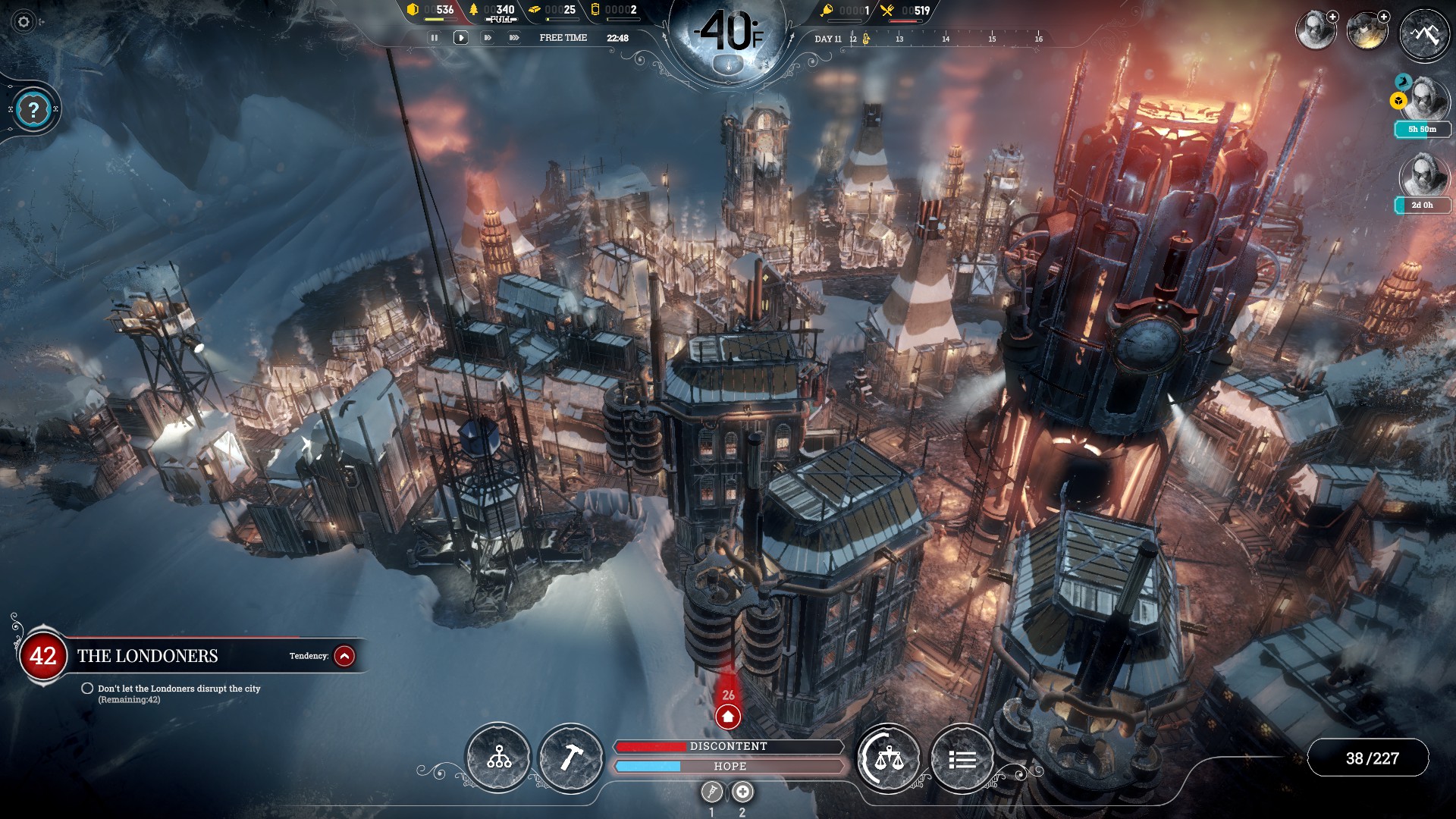
Human resources
At times I felt like a villain for doing the right thing or a hero for doing the wrong one.
You can pass a new law every 18 hours, and very few of them feel like triumphs of legislation. To make sure everyone has enough to eat, you can cut the food rations with sawdust. To keep production up, you can put children on work detail. Should the deathly ill be treated or just kept comfortable so you focus on the people you know you can save? Nearly every law has a downside: I mean, obviously, children shouldn't have to work, they're children. But try saying that when you've only got enough coal to last an hour and night is about to fall. It's harsh to send a kid out to gather resources from the snow, and even harsher to have him work in dangerous coal mine, but isn't that preferable to letting his parents freeze to death?
Eventually you'll have to choose how to keep your citizens motivated in the face of endless winter. Will it be with order and discipline, or faith and spirituality? Both paths of law can build hope in your population, mainly by exerting control, which can eventually turn you into a despot or false god. A neighborhood watch sounded like a fine idea to me since thieves had been plundering city supplies and rations. Guard towers felt like a natural choice to cut down on troublemakers. Patrols led to arrests, arrests led to prisons, and soon I found myself mulling over building a propaganda center to issue leaflets to reassure everyone I had our problems handled. They needed to believe everything was going to be OK, or at least I needed them to believe it. So I forced them to believe it, I made them be hopeful. It was that or risk losing everything.
The faith path, meanwhile, gives you shrines and temples to comfort citizens, but again, it's a small step from encouraging a little praying to stomping on competing faiths and declaring yourself an infallible leader. You may think you'd never consider rounding up anyone who speaks out against you or publically executing a troublemaker in the middle of town, but in desperate times, when you're on the brink of being cast out of your city or abandoned by the dozens, ruling with an iron fist doesn't feel like the worst option, just one bad option among several. These choices aren't pleasant ones, but Frostpunk is excellent at making you balance being a good leader against being an effective one. At times I felt like a villain for doing the right thing or a hero for doing the wrong one, something few games are bold enough to allow.
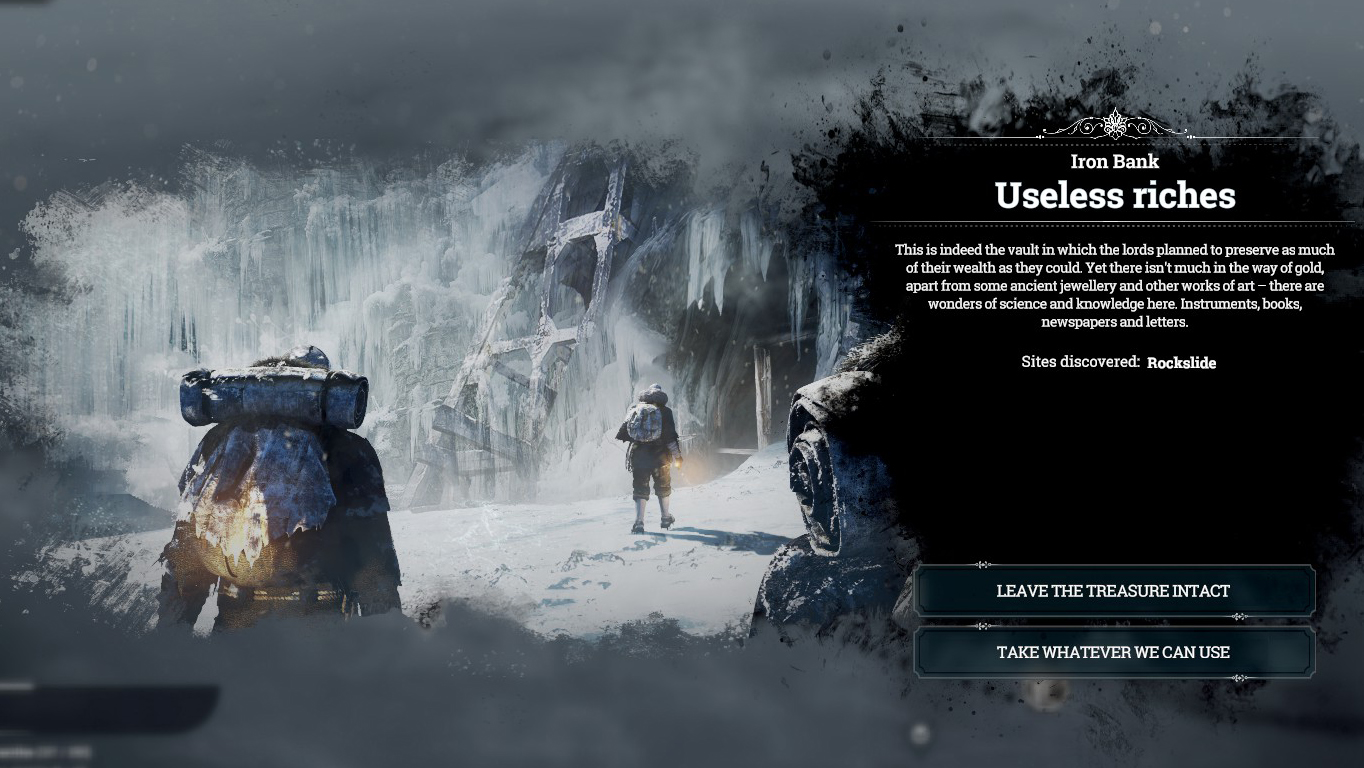
Ice fishing
Frostpunk isn't contained to your chilly little city: there's a big frozen world out there, and once you've constructed a lookout station you can rise above the rim of your crater and have a look around, then send scouting parties out to investigate new areas of interest. It's a welcome change to widen your view from the sooty smokestacks and narrow streets and explore. Locate survivors in desperate need of help, find the frozen remains of another city, look for other pockets of life that might be fighting to survive. Like much in Frostpunk, the results of expeditions can be a glorious relief or a terrible burden. Sometimes your scouts will find resources and deliver them back to your city, additional coal or wood you need to complete a project or heat your generator for a few extra, crucial hours. You can even establish outposts to keep wood, food, or other resources arriving in your city on a regular basis.
Every pair of hands that can solve a labor problem is attached to one mouth that can cause a food shortage.
But while finding new citizens means more workers and engineers, it also means more shelters need to be built and heated, more food hunted and cooked, and more sick filling your already crowded medical buildings. Every pair of hands that can solve a labor problem is attached to one mouth that can cause a food shortage. At one point, several big waves of refugees arrived, most of them terribly ill, which meant either a mad rush of new construction or the brutal choice of turning some or even all of them away. An earlier law I'd passed saying working children get double rations, an act of mercy to make up for an act of cruelty, meant the choice to rescue dozens of abandoned kids in the wild wasn't an automatic yes. Frostpunk is startlingly adept at making your doubt, and even regret, acts of decency.
Your scouts also gather information about what happened to the world, why it happened, and more disturbing: what is going to happen next. None of it is good news.
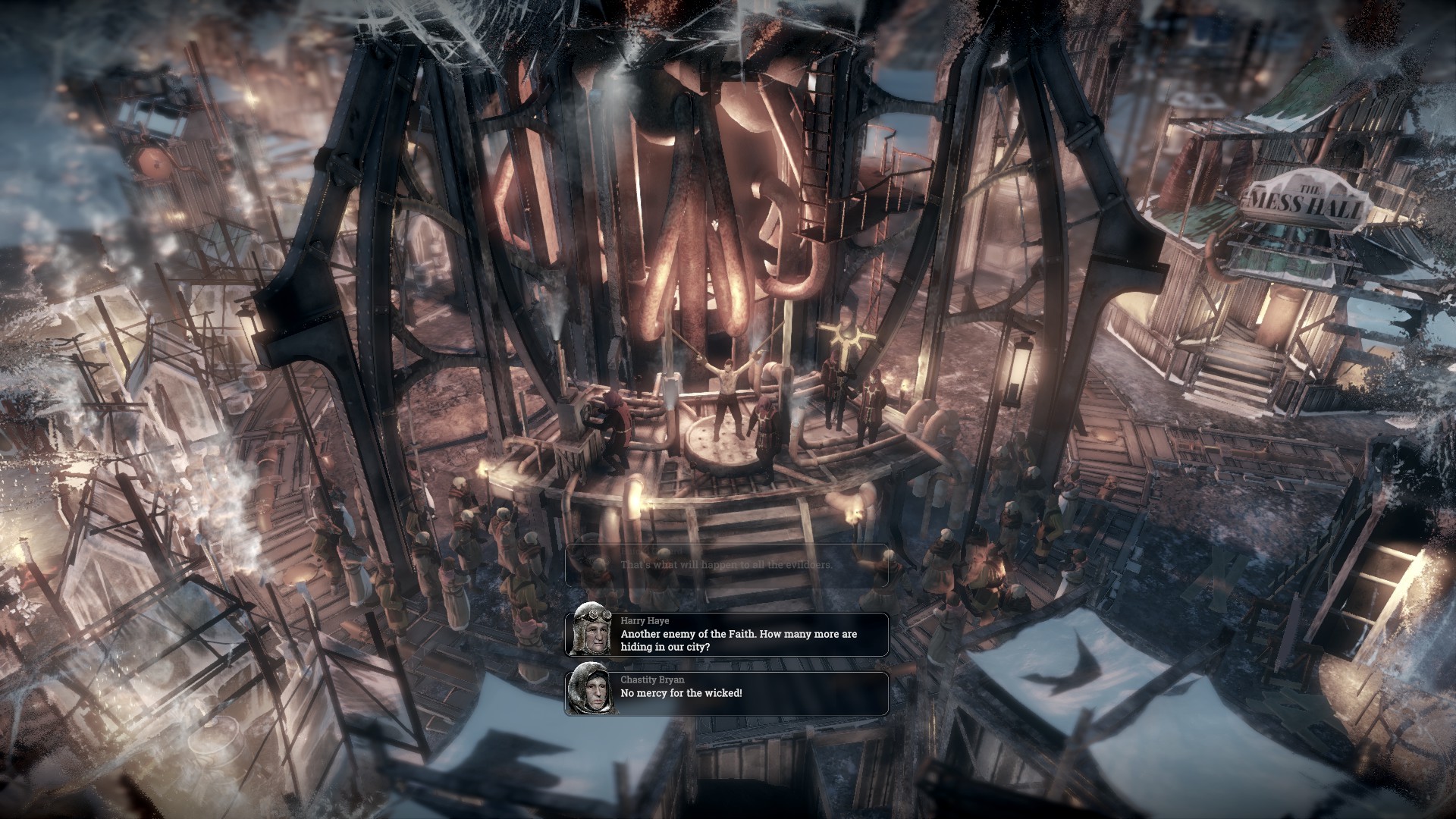
In cold blood
The first time my scouts delivered some really bad news, my city was humming along, if not perfectly then at least adequately. I was building storehouses for stockpiles of coal and wood. I'd replaced tents with real houses, kept warm by steam towers, which meant no one was getting sick. A supply line for extra lumber was in place. I had a factory in place to build robots that could work around the clock, and was even planning to build a robot that could run my robot factory. Discontent was low and hope was sky-high. The news, which I don't want to spoil, changed all of that in an instant, and my city's hope meter drained almost entirely, taking a lot of my own hope with it. I wanted to continue on with my efficient city planning, but now I had to cast those plans aside and focus only restoring hope or face complete failure.
It felt unfair at first. Deeply unfair. I'd worked hard to make my city safe, habitable, and functional, and my reward was that half my population abruptly deciding they'd be better off leaving. Structurally and strategically I'd done everything right, but people were still miserable, and it took me a while to accept that Frostpunk, as a game, could be allowed to betray me like that. But it's not just about building a city, it's about dealing with society, and real society can work like that sometimes, like when scientists develop life-saving vaccines only to see parents turn to Jenny McCarthy for pediatric advice. When you give society the tools to survive, they might just fling a wrench into the gears. Society sucks. Automatons would never do that.
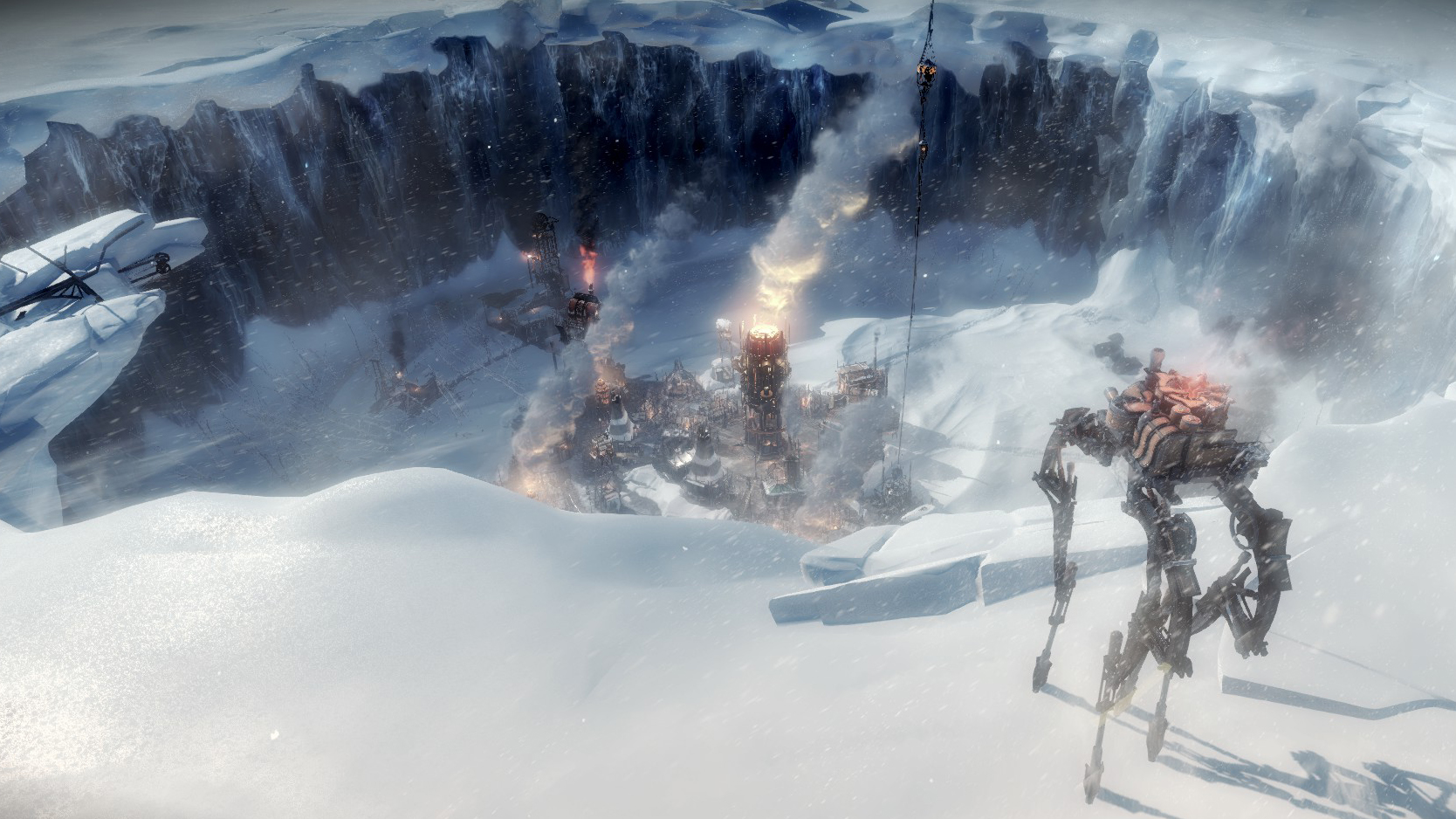
End of days
Frostpunk isn't an endless city builder: the campaign lasts about 45 days (which took me roughly 12 hours), culminating in an event that will put your fragile city and citizenry to the test in unthinkable conditions. It does feel a bit strange when the game ends. I'm used to open-ended city builders that let me play as long as I want, and I certainly would have enjoyed to opportunity to continue to tinker with my city after the final curtain, so that's a bit disappointing. There's some replayability here: choosing different laws the next time, trying to avoid the mistakes of the last campaign, though the major events and discoveries will be the same each time. One full game is enough to unlock nearly everything in the tech trees, so a replay won't be a wholly different or surprising experience.
Frostpunk keeps your view several stories above the frosty misery of the city, so you can never really connect with your citizens.
There are a couple other scenarios to try, however (with more planned, according to the menu text): in one you're challenged to build a city that can support hundreds of refugees and deal with major social unrest as a result. In the other your task is to keep several seed storage vaults warm enough to protect their contents with very few human workers, relying instead on building an army of automations. I've played a bit of both scenarios and the challenges are significantly different from the main campaign.
Frostpunk also has extraordinary style and and art design. I love the way notifications and menus spread across your screen with the sound of cracking ice, the way steam rises when the sun hits your city after a long cold spell, beads of condensation forming on your screen as you sigh in relief at having survived another day, and the way your tiny citizens wade through waist high snowbanks leaving trails of black tundra behind them, only for those grooves to fill back in as more snow falls. It's beautiful and engrossing in its grim depiction of a world gone cold.
I only wish I could zoom in closer. Frostpunk keeps your view several stories above the frosty misery of the city, so you can never really connect with your citizens. Sometimes instead of looking at labeled meters to tell my how my people feel, I wish I could just peer into their faces and read their expressions, to see their hope or misery for myself. Then again, who has time to take the temperature of the masses? I've got coal to mine. Get to it, my dear automaton. You might break down from time to time, but you'll never lose hope.
Frostpunk is a stressful, stylish, and addictive survival management game filled with incredibly difficult choices.

Chris started playing PC games in the 1980s, started writing about them in the early 2000s, and (finally) started getting paid to write about them in the late 2000s. Following a few years as a regular freelancer, PC Gamer hired him in 2014, probably so he'd stop emailing them asking for more work. Chris has a love-hate relationship with survival games and an unhealthy fascination with the inner lives of NPCs. He's also a fan of offbeat simulation games, mods, and ignoring storylines in RPGs so he can make up his own.
